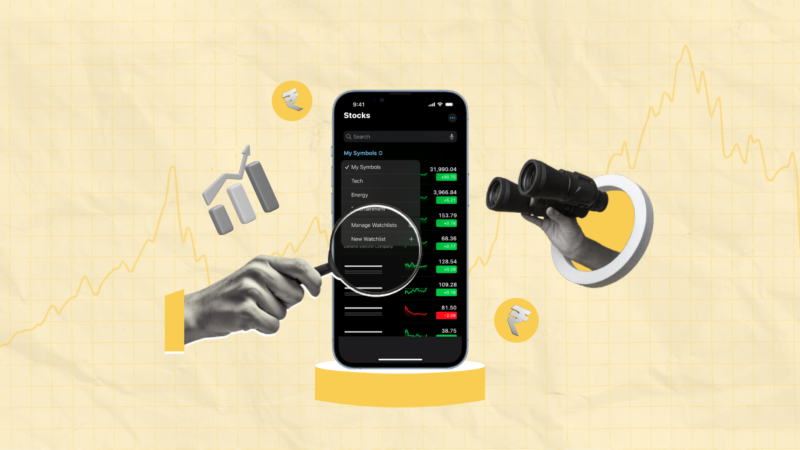A Deep Dive into Focused Funds

In the dynamic world of mutual funds, where diversity often takes centre stage, Focused Mutual Funds emerge as a distinctive avenue for generating long-term wealth. Their strategic approach narrows down the focus of investing while dipping into a select group of concentrated stocks with the potential for success. As we venture into the realm of focused funds, we unravel the intricacies, weighing the pros and cons, and examining the key considerations that can shape your investment journey. Are these funds a strategic gem in your portfolio, or do they present challenges that need to be attended with caution? Whether you’re a seasoned investor seeking a strategic edge or someone navigating the mutual fund space for the first time, our exploration of focused funds will guide your path towards informed investment choices.
What is a Focused Equity Fund?
Focused funds, also referred to as focused equity funds, are unique in their structure, compositions, and subsequent behaviour. Unlike diversified funds that spread their investments across a wide range of stocks, focused mutual funds concentrate on a limited number of carefully selected stocks. As per the Securities and Exchange Board of India (SEBI) guidelines, the cap is set at a maximum of 30 stocks in one fund. This intentional focus allows fund managers to delve deeper into chosen stocks, aiming to create a concentrated and potentially high-performing portfolio.
Advantages of Investing in a Focused Equity Fund?
- Strategic Concentration: Focused funds strategically concentrate on a limited number of stocks, allowing for in-depth research and potential capitalization on high-performing opportunities.
- Active Portfolio Management: With a smaller portfolio, fund managers can actively monitor and adjust holdings based on changing market conditions, fostering adaptability and responsiveness.
- Potential For Higher Returns: A focused approach means that the fund’s performance is closely tied to the selected stocks. If those stocks perform well, the fund has the potential to deliver higher returns.
Navigating the Challenges
- Higher Volatility: Focused funds, with a concentrated portfolio, may exhibit higher volatility compared to diversified funds. The impact of a single underperforming stock can be more pronounced.
- Increased Risk: The limited number of stocks in the portfolio elevates the risk level. If one or more of these stocks face challenges, it can have a significant impact on the overall fund performance.
- Market Sensitivity: Focused funds are more prone to market trends, making them sensitive to market shifts. Investors need to be prepared for potential short-term fluctuations.
Important Considerations
- Research Fund Managers: Before investing, scrutinise the track record and expertise of the fund manager. The success of a focused fund often hinges on the manager’s ability to make astute investment decisions. More on this in the next section.
- Assess Risk Tolerance: Evaluate your risk tolerance carefully. Focused funds, while potentially rewarding, demand a higher risk appetite due to the concentrated nature of their portfolios.
- Diversification In Portfolio: Consider the existing diversification in your overall investment portfolio. If you already have diversified holdings, a focused fund can add a strategic layer rather than duplicating exposures.
- Invest With A Long-Term Horizon: Focused funds may experience short-term volatility. Opt for a long-term investment horizon to ride out market fluctuations and potentially benefit from the compounding of returns.
The Role of a Fund Manager in Focused Equity Mutual Funds?
The fund manager acts like a conductor orchestrating the performance of a mutual fund. In the case of focused equity mutual funds, this role becomes even more pivotal, demanding a thorough understanding of the market, a strategic vision, and the ability to navigate a concentrated portfolio.
- Navigating The Concentration: The key to the success of focused equity funds lies in their selectivity comprising a deliberately limited number of stocks chosen with precision. Fund managers are entrusted with this task. Often, they face the dual challenge of identifying high-performing stocks while managing the inherent risks of a concentrated portfolio.
- Strategic Stock Selection: Unlike diversified funds that are spread across various sectors, focused equity fund managers meticulously curate a portfolio with a common theme. The strategic selection of stocks becomes a vital task that involves in-depth research, market analysis, and a keen understanding of individual stock dynamics.
- Active Portfolio Management: Focused equity funds are not passive in nature. Hence, the fund manager’s role extends beyond initial stock selection to active portfolio management. They constantly monitor the performance of each holding, assessing market conditions, and making timely decisions to maximise returns while balancing risks.
- Risk Mitigation And Decision-Making: The concentrated nature of focused funds makes risk mitigation a critical aspect of the fund manager’s role. Every decision, from entry to exit, requires a careful balance between the potential for high returns and the need to shield the portfolio from excessive volatility.
- Market Insight And Adaptability: Focused mutual fund managers also require a deep understanding of market trends, industry dynamics, and a foresight that can anticipate movements. Adaptability is the key here. While algorithms and data analytics play a role, the human element in decision-making remains irreplaceable. Fund managers bring intuition, experience, and a deep understanding of market psychology into the equation, steering the fund through unpredictable market conditions.
- Communication With Investors: Fund managers of focused equity funds need to transparently articulate their investment strategies, rationale behind stock selections, and the inherent risks to investors. This clear communication builds trust and helps investors align their expectations with the fund’s objectives.
Who Should Consider Focused Funds?
- Seasoned Investors: Those with experience and a seasoned understanding of the market and a higher risk appetite may find focused funds appealing.
- Long-Term Investors: Individuals with a long-term investment horizon who can withstand short-term market fluctuations.
- Risk-Taking Investors: Those willing to take on a slightly higher level of risk in exchange for the potential of superior returns.
In conclusion, while Focused Funds offer a concentrated and potentially lucrative investment strategy, they are not a one-size-fits-all solution. Their focused approach has the potential to yield substantial returns, but it comes with an accompanying increase in risk and volatility. Thorough research, an awareness of associated risks, the expertise of the fund manager, and alignment with individual investment objectives are crucial elements in determining whether focused funds are the right fit for a particular investor’s portfolio.




